Nigella sativa, often called black cumin or black seed, is a medicinal plant indigenous to the eastern Mediterranean, northern Africa, southwest Asia, and the Indian subcontinent.
Although it’s suitable for culinary use, it’s perhaps more widely known for its long history in traditional medicine. People have credited it with so many health effects that some describe it as a cure-all.
For instance, it’s claimed to support immune function, boost cognitive performance, and shield the body from several chronic illnesses, including type 2 diabetes and cardiovascular disease.
This article summarizes what you should know about Nigella sativa, including its nutrient profile, common preparations, and whether scientific evidence supports the claimed health effects.

What is Nigella sativa?
Nigella sativa is a medicinal flowering plant in the Ranunculaceae family. It’s commonly called black cumin because the seeds look similar to cumin seeds.
While used as a spice, Nigella sativa is perhaps better recognized for the broad range of health advantages it’s traditionally believed to offer.
Traditional uses
Nigella sativa has such diverse uses that some practitioners have nicknamed it “the herb from heaven”.
It has a long-standing place in medicinal systems like Ayurveda, Unani, Siddha, and Tibb. Its presence in the tombs of Egyptian pharaohs indicates use dating back to ancient Egypt.
Researchers think that back then, its antibacterial qualitiesmay have contributed to its role as a preservative during mummification.
Today, this herb is used across many Arab countries, parts of Asia, Africa, and Europe to help prevent or treat a variety of conditions.
These uses span from treating joint swelling to addressing respiratory ailments such as asthma and bronchitis. Nigella sativa is also claimed to offer some protection against chronic diseases like type 2 diabetes and heart disease.
Forms of Nigella sativa
Nigella sativa can be bought as raw seeds or as a paste, both of which can be used to season food.
It’s also available as essential oil, extracts, powdered form, or in capsules — all popular choices for those seeking therapeutic effects.
The optimal form often depends on the intended benefit. For example, oils and pastes can be applied topically to address skin issues or provide relief from inflammation or pain.
Conversely, powders, capsules, and extracts are typically selected to target internal inflammation or chronic illnesses.
SUMMARYNigella sativa is a herb widely used in traditional healing. It’s sold as essential oil, paste, powder, capsules, or extracts. Globally, it’s employed to prevent or manage a variety of health concerns.
Nutrients and active compounds
To date, limited research has examined the exact nutritional makeup of Nigella sativa.
Additionally, its nutrient levels seem to differ depending on growing location, harvest maturity, and harvesting techniques.
One analysis indicates that N. sativa seeds from Bangladesh consist of roughly 45% fat, 20% carbohydrates, and 20% protein. They also contain some potassium, phosphorus, calcium, and magnesium, though exact quantities weren’t detailed (2).
Another paper suggests Nigella sativa supplies small amounts of vitamins A, C, and E, along with certain B vitamins. Still, the precise vitamins and their amounts are not well characterized.
By contrast, more is known about the plant’s antioxidant and phytochemical content.
Antioxidants are plant-derived compounds that help shield your cells from damage and disease. Nigella sativa seems particularly rich in antioxidants from the polyphenol, tocopherol, terpenoid, and terpene families.
Among these, thymoquinone — an antioxidant in the terpene/terpenoid group — is the most abundant. Researchers believe this constituent likely underlies many of Nigella sativa’s claimed effects.
Nigella sativa also contains alkaloids and phytosterols, two types of plant substances associated with cholesterol-lowering properties.
SUMMARYNigella sativa provides a notable amount of fat and protein, plus smaller quantities of vitamins and minerals. It’s particularly rich in thymoquinone, alkaloids, and phytosterols.
Potential health effects
Nigella sativa is reputed to offer such a wide array of benefits that it’s sometimes called a panacea.
However, not every claimed effect has strong scientific backing. Below are the benefits with the most supporting research.
High in antioxidants
Antioxidants are plant compounds that protect cells from damage by unstable molecules called free radicals.
When free radicals build up, they cause oxidative stress, which may raise the risk of illnesses like cancer and heart disease.
As noted, Nigella sativa is particularly abundant in thymoquinone, a potent antioxidant with anti-inflammatory actions. Many of the herb’s purported benefits are thought to stem from this compound.
A review of five trials indicates Nigella sativa exerts significant antioxidant effects in people, though further research is required to determine which health outcomes these effects influence.
May reduce inflammation
Inflammation is the body’s natural reaction to injury or infection. It’s normally brief and helps protect against harm.
Chronic inflammation, however, is long-lasting and is linked to diseases such as type 2 diabetes, cancer, and heart disease.
Animal studies indicate Nigella sativa can lower inflammation markers following injury.
Similar observations have been made in women with rheumatoid arthritis (RA), an autoimmune disorder causing joint inflammation.
In one small trial, women with RA who took 1 gram of Nigella sativa oil daily for 2 months showed lower blood inflammation markers and fewer swollen joints than those receiving a placebo.
Researchers point to thymoquinone as the likely agent behind the herb’s anti-inflammatory actions.
Although these findings are encouraging, studies remain limited, and more human trials are necessary to draw firm conclusions.
May boost immune function
Nigella sativa may also support the immune system.
Cell and animal experiments suggest extracts from the herb can stimulate activity of white blood cells — the cells that fight infection and disease.
One small trial in children with a hereditary blood disorder found that adding 2 grams of Nigella sativa powder to meals daily for 3 months improved white blood cell counts and reduced oxidative stress markers (10).
However, that study lacked a placebo control, making it hard to attribute effects definitively to the supplement.
In the RA study mentioned earlier, women who consumed 1 gram of Nigella sativa oil daily had higher white blood cell counts after 2 months than the placebo group, along with lower inflammation markers and fewer swollen joints.
While these results are promising, it is unclear whether the increased white blood cell counts translate into meaningful real-world immune benefits. Additional research is needed.
May protect brain health
Brain inflammation is thought to play a significant role in conditions such as Alzheimer’s and Parkinson’s disease.
Cell and animal studies suggest thymoquinone may reduce brain inflammation.
Researchers believe this could help prevent or slow the progression of inflammation-related neurological disorders like Alzheimer’s disease, encephalomyelitis, epilepsy, depression, and Parkinson’s disease.
An older small trial found that older adults taking 500 mg of N. sativa daily for 9 weeks performed better on tests of attention, memory, and overall cognition compared with a placebo group.
Although this might indicate potential for delaying age-related cognitive decline, the study was small and relatively old, so further research is required to confirm and extend these findings.
May reduce cholesterol and blood pressure
High cholesterol and hypertension are major cardiovascular risk factors. Evidence suggests Nigella sativa may help lower both.
Trials in women with obesity and adults with type 2 diabetes show that taking 2–3 grams of Nigella sativa per day for 8–12 weeks can significantly reduce total and LDL (bad) cholesterol (, 16, ).
Reviews report average reductions of 16–23 mg/dL in total cholesterol, 14–22 mg/dL in LDL cholesterol, and 7–21 mg/dL in triglycerides after supplementation.
Some studies also find increases in HDL (good) cholesterol, although others do not.
Regarding blood pressure, a review of 11 randomized controlled trials found Nigella sativa may slightly reduce blood pressure. Participants taking the herb for about 8 weeks experienced average decreases of 3.3 mmHg in systolic pressure and 2.8 mmHg in diastolic pressure compared with placebo.
Still, other studies show no blood pressure benefit, so more research is needed for definitive recommendations.
May improve blood sugar control
Nigella sativa may also help regulate blood glucose.
In a recent trial, adults with type 2 diabetes who took 1 gram of N. sativa daily for 8 weeks experienced a significant reduction in fasting blood glucose.
Two reviews indicate supplementation may lower fasting glucose by about 17.8 mg/dL on average.
The same reviews reported an average hemoglobin A1C decrease of roughly 0.7%, suggesting improved long-term glucose control.
Experts propose that Nigella sativa may increase insulin secretion, enhance insulin sensitivity, and boost cellular glucose uptake.
Other suggested benefits
Nigella sativa may also offer the following potential advantages:
- May inhibit cancer cells. Older in vitro and animal studies suggest N. sativa might limit the growth and spread of cancerous cells, but human trials are needed to confirm this.
- May support male fertility. Limited animal data suggest N. sativa could help with obesity-related male infertility, though more evidence is required.
- May ease asthma symptoms. A small review suggests N. sativa might reduce asthma symptoms, but additional studies are necessary.
- Antimicrobial effects.N. sativa shows antibacterial, antiviral, and antifungal activity in some studies, appearing particularly effective versus Candida albicans, the yeast responsible for candidiasis.
- May protect the liver. Some research indicates N. sativa may guard the liver from damage; however, more studies are required.
- May support kidney health. Evidence suggests it could improve kidney function in chronic kidney disease and may help dissolve kidney stones, but further research is needed.
- May help treat stomach ulcers. Animal studies indicate N. sativa might alter the gastric environment in ways that reduce or treat ulcers; human trials are lacking.
While these findings are encouraging, additional research is necessary before definitive claims can be made.
SUMMARYNigella sativa may provide multiple health advantages. The most substantiated effects include antioxidant and anti-inflammatory activity, improved blood sugar regulation, immune support, and benefits for heart and brain health.
Possible side effects
Nigella sativa has a long history of traditional use with few reported adverse events. It’s also commonly used as a culinary ingredient in some cultures.
On this basis, N. sativa is likely safe in small amounts or when consumed occasionally.
That said, only limited research has evaluated its overall safety, and much of that is animal-based.
For example, mice given very large oral doses of 0.9–1.4 grams per pound (2–3 grams per kg) experienced breathing difficulties and multi-organ failure.
Also, high doses administered to pregnant rats were associated with pregnancy loss or developmental issues in offspring.
Such large intakes are uncommon in humans, except possibly in supplement overdose scenarios.
More studies are needed to establish evidence-based safety and dosing guidance.
SUMMARYNigella sativa is likely safe when used occasionally or in small culinary amounts. However, robust safety and dosing data are currently insufficient, so further research is warranted.
The bottom line
Nigella sativa is a medicinal plant valued both as a spice and a traditional remedy.
Among its many proposed benefits, only a subset has solid research support.
These supported effects include antioxidant and anti-inflammatory actions, improved blood sugar control, enhanced immune markers, and reductions in certain heart disease risk factors.
Bear in mind that there isn’t yet enough information to make firm safety or dosing recommendations.
If you want to try Nigella sativa, begin by adding small amounts of the seeds or paste to food. Using modest quantities will help reduce the chance of adverse effects.

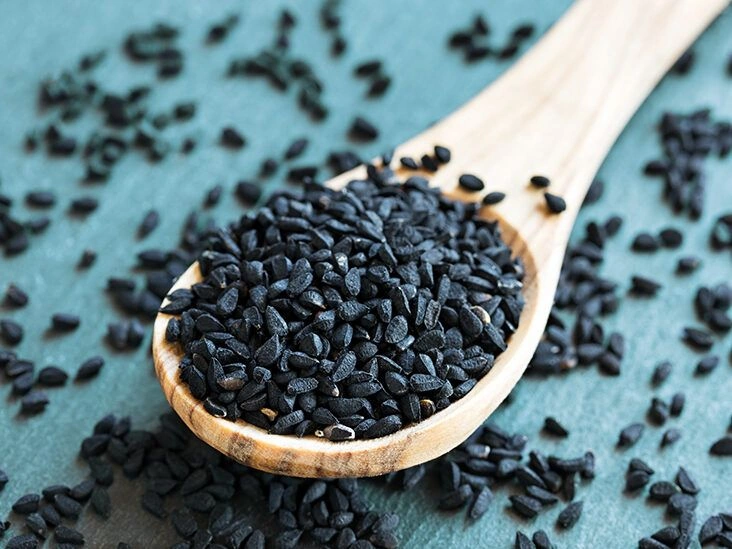


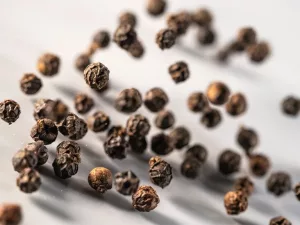

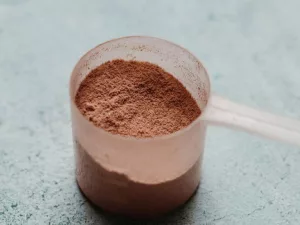



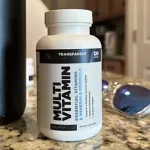








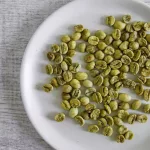



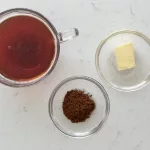

Leave a Reply
You must be logged in to post a comment.